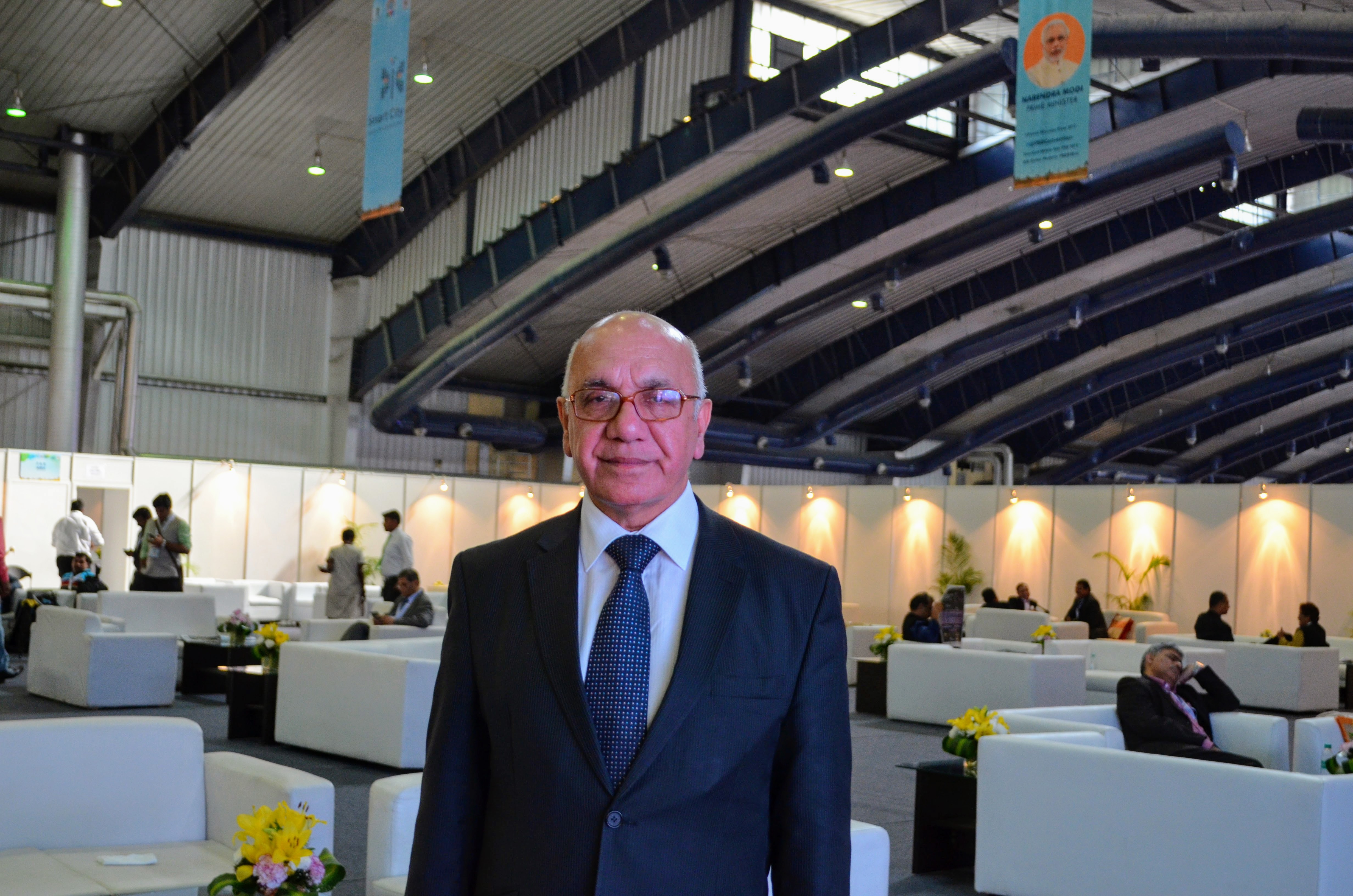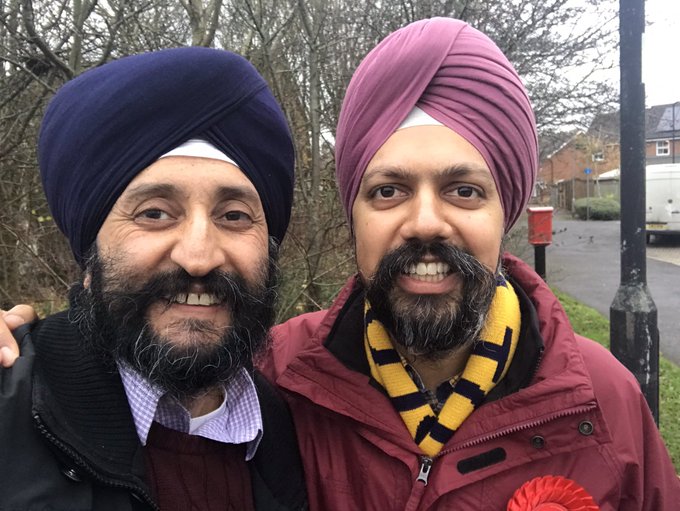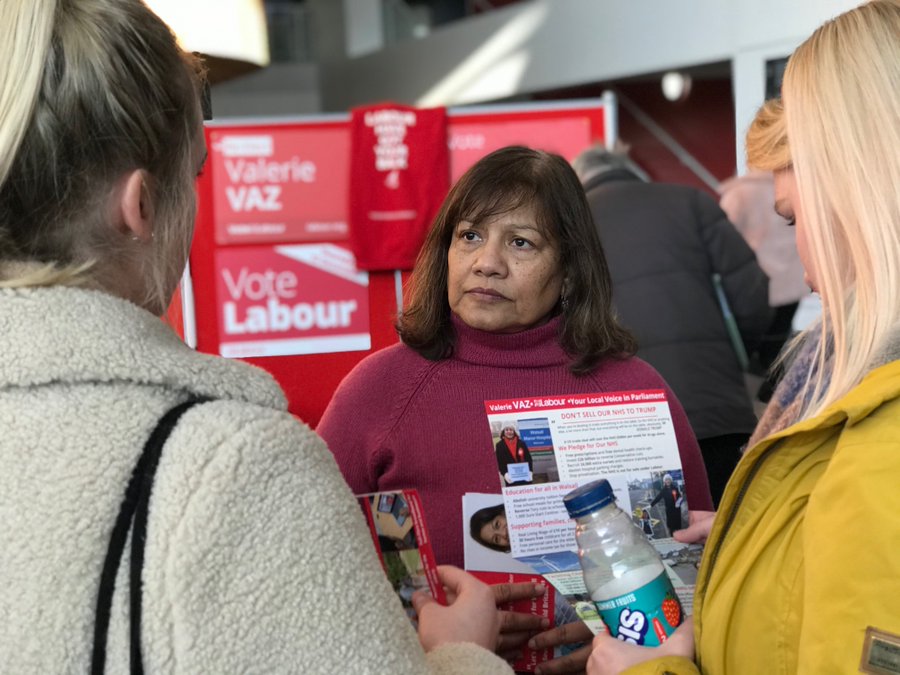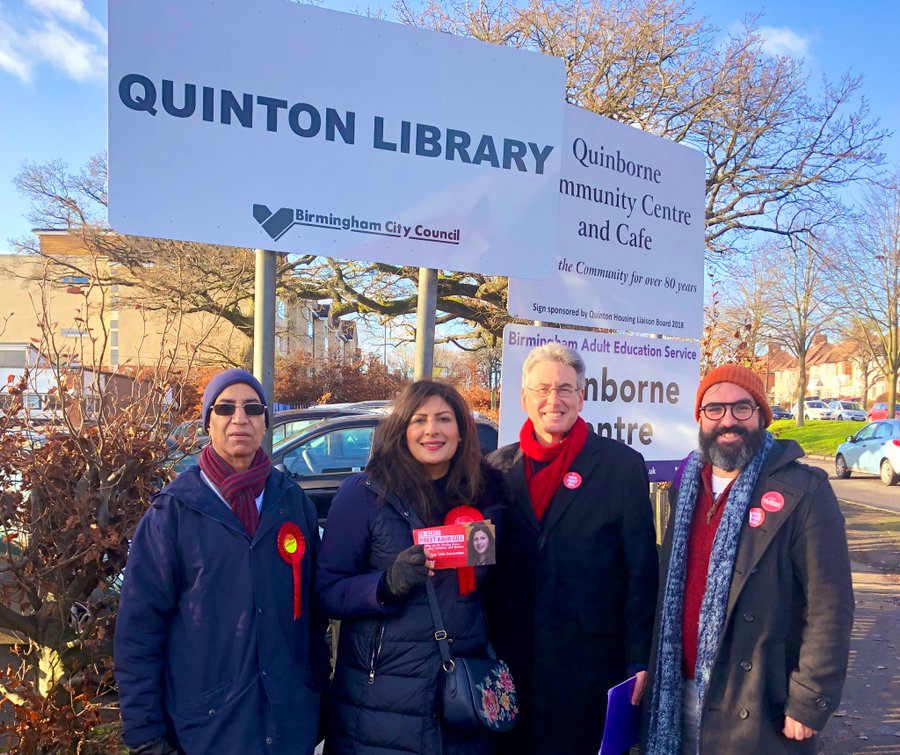With Hindi ads, more Tory tickets going to Indian-origin candidates and a pro-Brexit trend among the British Hindu community, the United Kingdom’s Labour Party will see its traditional British-Indian voter base divided in the upcoming election, claim poll experts.
While Labour’s resolution calling for international intervention in the Indian state of Jammu and Kashmir was certainly a contributing factor, support for Brexit among the Indian-origin community has been the major reason for the shift towards the Tories.
Despite the determination of Indian diaspora organisations such as the Overseas Friends of BJP to deliver the Indian-origin community vote to the Tories, most British-Indian Labour candidates are expected to keep their seats in Parliament.
Connected to India profiles some key Indian-origin Labour candidates ahead of the UK polls.
Virendra Sharma
With Keith Vaz retiring from his seat, Virendra Sharma is set to become the longest-serving Indian-origin Member of Parliament in the UK.
Sharma was born in India in 1947 and studied at the London School of Economics on a trade union scholarship after emigrating to Hanwell in 1968.
“I am originally from a village Mandali in Jalandhar, Punjab and studied in the local town. My father used to be a political activist, who played a major role in the development of Punjab,” Sharma told Connected to India in a May 2017 interview.
He began his political career by joining the Liberal Party, then switched to Labour. Sharma was elected as MP in the Ealing Southall by-election held on July 19, 2007, and has held on to the seat ever since.
Sharma’s popularity among the British-Indian community has stretched across the party divide, with the OFBJP, who are campaigning against Labour Indian-origin candidates this election, stating he would be the only exception.
He was also placed eighth in Change.org’s People-Power Index ranking British MPs from best to worst.
Tan Dhesi
Tanmanjeet Singh Dhesi, or ‘Tan’ became the first turban-wearing Sikh MP in the UK after winning the 2017 election from Slough. Dhesi, whose win signalled the growing influence of the Sikh community in British politics, was born in Slough but his family hails from Raipur in Jalandhar, where Tan finished his secondary schooling. He went on to earn degrees from University College London, Keble at Oxford and Fitzwilliam College, Cambridge.
Dhesi was in the political limelight earlier in 2019 when he criticised alleged Islamophobic comments by UK PM Boris Johnson, which compared Muslim women wearing the burqa to "letterboxes" and "bank robbers".
He began his political career in 2007 when he was elected to the Gravesham Borough Council and went on to become the youngest Sikh Mayor in Europe.
Dhesi is expected to keep his seat according to poll experts but is facing a challenge from Indian-origin Tory candidate Kanwal Toor Gill.
Valerie Vaz
Valerie Carol Marian Vaz has served as Member of Parliament from Walsall South since 2010 and was the Shadow Leader in the House of Commons till the snap polls were announced.
Vaz was born in Aden (now part of Yemen) to Goan-origin Anthony Xavier and Merlyn Verona Vaz. She earned a Bachelor of Science degree in Biochemistry from Bedford College, University of London.
Her younger brother Keith Vaz was the longest-serving Indian-origin MP in Parliament as well, and her mother was a former Labour Councillor, highlighting the family’s deep ties to the party.
She is a supporter of Jeremy Corbyn and is an advisor to the Queen on matters of state, having been appointed to the Privy Council earlier this year.
Vaz’s constituency is considered a Labour stronghold, with the last non-Labour MP from the seat elected in 1974. She is up against British-Indian Gurjit Kaur Bains, who has the Conservative ticket as part of the Tories’ strategy of wooing the Indian-origin vote away from Labour.
Preet Kaur Gill
Preet Kaur Gill became the first female Sikh MP when she won the 2017 election from Birmingham, Edgbaston.
Gill was born in Edgbaston to Daljit Singh Shergill and Kuldeep Kaur Shergill. She studied at Lordswood Girls' School and Bournville College before being awarded a first-class honours degree in social work and sociology from the University of East London.
In the 2017 general election, Gill held the seat for Labour with 24,124 (55.3%) votes and a majority of 6,917 (15.8%).
Birmingham, Edgbaston was once considered to be a safe Conservative seat, but it has had a Labour MP since 1997 and Gill looks to keep that record going, according to pollsters.






